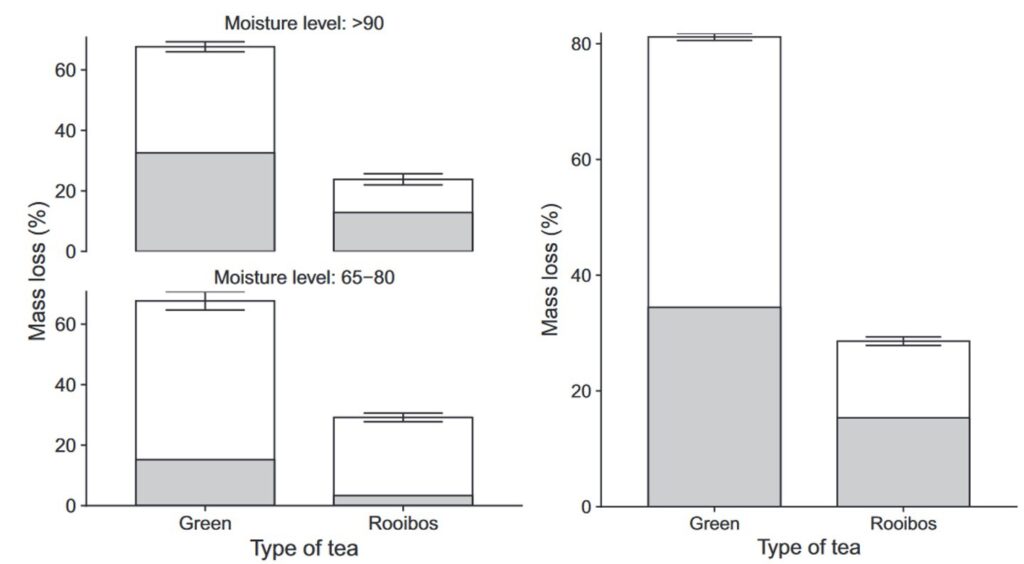Lovisa Lind, together with Andrew Harbicht (former post-doc), Eva Bergman, Johannes Edwartz (former bachelor student) and Lutz Eckstein published a paper, dealing with the potential effects of initial leaching for estimates of mass loss in decomposition studies using the tea-bag-index (TBI).
This paper, published in the journal Ecology and Evolution (https://doi.org/ 10.1002/ece3.9118), studied the short-term mass losses (3–4 h) due to initial (physical) leaching under field and laboratory conditions for green and rooibos tea using the TBI and contextualized the findings using existing long-term mass loss (90 days) in the field for both aquatic and terrestrial environments. They found a fast and considerable initial leaching rate for both tea litter types, which could be mistaken for decomposition through microbial activity. When relating these estimates of initial leaching to long-term studies, they found that up to 30–50% of the mass loss of green tea reported as decomposition could be lost through leaching alone in high moisture environments (>90% soil moisture and submerged). Not accounting for such differences in initial leaching across habitats may lead to a systematic overestimation of the microbial decomposition in wet habitats. Future studies of microbial decomposition should adjust their methods depending on the habitat, and clearly specify the type of decomposition that the study focuses on.
The left panel shows the average mass loss (%) of tea bags (green and rooibos) after 90 days of incubation in boreal riparian habitats with different soil moisture levels and the right panel shows an average mass loss (%) of tea bags after 90 days of incubation in the Mörrumsån River. Shaded regions indicate the extent of mass loss (%) by leaching after 4 h from our field data at 65%– 80% and >90% soil moisture, respectively.



